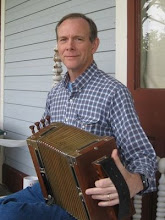Collaborative Open Webcasting Community
You are here
- Home »
- David Pulling
User login
Search
Audio Archives
- 21st Century Learning
- Conversations
- COOLCast
- Designers for Learning
- EdTechBrainstorm
- EdTechTalk Podcast
- EdTechTalk Planning
- EdTechWeekly
- Instructional Design Live
- It’s Elementary
- K12 Online Echo
- Making Connections
- Parents as Partners
- Seedlings
- Teachers Are Talking
- Teachers Teaching Teachers
- Women of Web 3.0
Recent comments
- High School Teachers and Students Collaborating 4 years 10 months ago
- Good for teachers that wish to progress 8 years 1 month ago
- Digital learning 8 years 9 months ago
- appreciate 9 years 4 months ago
- Wordpress export options 9 years 7 months ago
- Getting involved Once Again 9 years 8 months ago
- I blogged it here 9 years 11 months ago
- archive and mp3 rendition 10 years 6 days ago
- Trevor, we somehow never saw 10 years 3 weeks ago
- Jesmion, thank you for the 10 years 3 weeks ago
Who's online
There are currently 0 users online.
Do you have your EdTechTalk stuff yet? Did you know there are T-shirts, hats, coffee mugs, buttons, magnets, and tote bags available? They're all based on Wordle interpretations of the EdTechTalk Delicious tags.

What are you waiting for? These are limited edition items. Shop now and avoid the rush!
 nds.
nds.
 presented on the “Frameworks for Success in Postsecondary Writing” at the National Writing Project’s Annual Meeting in November, where she discussed the statement’s purpose, and recounted the process of composing it. We’ll ask her do some of that again. We’ll also use some of her questions from that session to guide our discussion on Wednesday evening: “What is your response to the statement? How might you use it to promote effective writing instruction at your school? How could this statement help you design thoughtful professional development?”
presented on the “Frameworks for Success in Postsecondary Writing” at the National Writing Project’s Annual Meeting in November, where she discussed the statement’s purpose, and recounted the process of composing it. We’ll ask her do some of that again. We’ll also use some of her questions from that session to guide our discussion on Wednesday evening: “What is your response to the statement? How might you use it to promote effective writing instruction at your school? How could this statement help you design thoughtful professional development?” on
on 